Frege, Dummett, Vagueness, Liars and Julius Caesar
Interview by Richard Marshall.
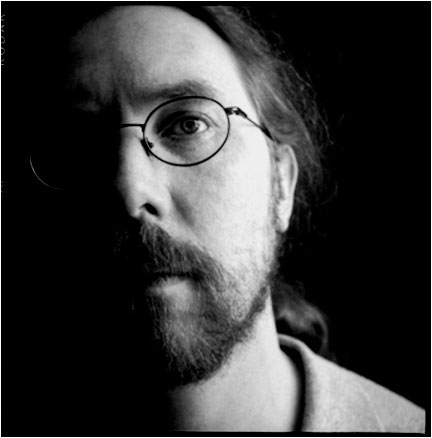
[Pic]
'In one of the stranger passages in philosophy, Frege criticizes a certain proposal about how the notion of number might be explained by pointing out that it does not allow us to decide whether Julius Caesar is a number and, if so, which one he is.'
'Generally speaking, I tend to think that whether a philosopher’s views are true is a poor test of their quality. What matter are the arguments they give, and the insights those arguments inspire.'
'As Graham Priest wrote when Dummett died, one really can’t over-state his role in making ‘non-classical’ logic a legitimate topic of mainstream philosophical inquiry. But, for my money, it’s Dummett’s work in philosophy of language that is most important. I think a lot of people are just starting to realize how rich it is.'
Richard Heckis probably best-known for his work on historical, conceptual, and technical problems emerging from the philosophy of Gottlob Frege, especially Frege's philosophy of arithmetic. He has also worked extensively on the philosophy of language and logic, however, and he has been working more and more on philosophy of mind. In the last few years, though, he has returned to Frege, having developed an interest in the question how Frege's characteristic mature doctrines emerge. Here he discusses both Frege and Dummett, plus vagueness, the liar paradox, compositionally and deflationism,
3:AM:What made you become a philosopher?
Richard Heck:It was a combination of things. I went to college (Duke University) thinking I was going to become a mathematician. It was what I’d always been good at. But I had also been exposed to philosophy at the Governor’s School of North Carolina, a state-wide program that I’d attended the summer after my sophomore year of high school, so I took a few classes and started to get hooked. I stumbled across Wittgenstein’s Tractatussome time in my junior year, I think, and found it fascinating. I then took a graduate seminar the spring of my junior year with Carl Posy in which read Frege and other classics of early analytic philosophy, and that really grabbed me. That was also about the time that I realized that the people around me who were really good at math had something I just didn’t seem to have. So it seemed like maybe philosophy was a better path for me. I completed both a B.S. in math and a B.A. in philosophy but decided to write my honors thesis in philosophy, with David Sanford. I fully committed to philosophy when it came time to apply to graduate school.
One thing I really like about philosophy is that it’s possible actually to do work in a wide range of different areas. I am particularly happy that I’ve even been able to do work in logic that has allowed me to use and develop my mathematical abilities, as well as to work on quite distant topics in philosophy of language and mind.
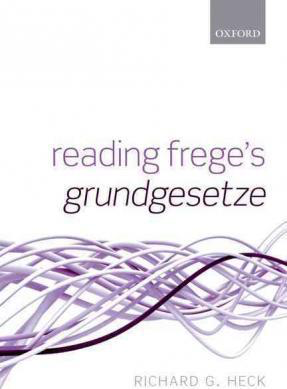
3:AM:You’re a leading expert on Frege. For the uninitiated, why is Frege so important to philosophy, and why is he perhaps less well known than others working in the same areas of philosophy such as Russell and Wittgenstein?
RH:Here I’m basically going to parrot some things Michael Dummett once said about this. Let me start with the latter question. Frege is unusual in the history of philosophy in how intensely focused he was on one set of issues. He worked on problems connected with mathematics and logic, and on related issues about language. He didn’t concern himself with larger issues in metaphysics or epistemology, and he didn’t do any philosophical work on politics or ethics. His work is often extremely technical, and so is the sort of thing likely to be of interest only to serious philosophy geeks. On that score, he couldn’t be more different from Russell and Wittgenstein. Russell wrote about everything and was a public intellectual. Wittgenstein didn’t write on quite such a wide range of topics, though much wider than Frege, but the style of his work gives it broad appeal. It’s oddly accessible in its inaccessibility.
So why is Frege important? One could write a book about that, but I think the short answer is that he initiated a way of thinking about logic and language whose consequences we are still assimilating. His influence has been so over-whelming that it is, in many ways, hard for us to appreciate, in retrospect, what a profound transformation he effected. Much of my own historical work in the last decade or so (much of it in collaboration with Robert May) has been directed at this very question.
3:AM:Why was Frege wanting to link maths with logic?
RH:One of the central developments of 19th century mathematics involved a dramatic increase in the standards of mathematical rigor. This was for a variety of reasons, but the short version is that there was a need to be stricter about the standards of proof, because certain familiar modes of reasoning had started to lead people astray, or at least threatened to do so. (Weierstrass’s proof that there is a function that is everywhere continuous but nowhere differentiable is often cited in this context.) So lots of people around Frege’s time had a similar idea: To try to get as clear as possible about (i) what the basic assumptions (axioms) of a particular mathematical theory were and (ii) what counts as rigorously deriving other conclusions (theorems) from those assumptions. Then we’d understand what a proof really was.
Frege’s first great contribution was on (ii): Existing systems of logic, deriving from Aristotle, but further developed in the work of George Boole and his followers, simply were not adequate for the purposes of mathematical reasoning, largely due to the absence of what we now know as quantifiers. Frege discovered quantification and with it modern logic. This made it possible to apply mathematics to the study of mathematical reasoning itself. It’d be nearly impossible to over-state the significance of that idea.
Along with some others, Frege also pursued a second question related to (i). What one mathematical theory treats as basic assumptions, some more fundamental theory might be able to prove. So Frege set out to see to what extent he could unify various theories and set them all on a single foundation. In his earliest work, this is posed as a question, but he quickly came to the view that much of mathematics---number theory, real and complex analysis, and the like, but not geometry---could be grounded in the very same logical principles upon which mathematics in general anyway depends. That is: The ‘logic’ you need to reason rigorously, described in the answer to (ii), also turns out to allow you to prove the basic assumptions of a whole range of mathematical theories, as wanted at (i). It’s hard to imagine a more elegant view.
3:AM:Was Frege’s Theorema development out of something that Hume had argued for, and therefore were his philosophical interests the same as Hume’s in this respect? Is Frege a Humean?
RH:Frege’s Theorem says that the basic principles of arithmetic, what we now call the ‘Peano axioms’, can be derived in second-order logic from the following principle:
(HP) The number of Fs is the same as the number of Gs just in case there is a one-one correspondence between the Fs and the Gs.
So HP says, for example, that the number of forks is the same as the number of spoons just in case you can match up the forks with the spoons in such a way that each fork gets its own spoon and there are no spoons left. That seems plausible, so much so that Frege took it to be a kind of analytic truth about the notion of number or, more precisely, about ‘cardinal’ number: number in the sense of ‘how many’.
Let me just say again what Frege’s Theorem says, since it really is quite astonishing: The axioms of arithmetic can all be proven, using only the resources of second-order logic, from HP.
What I’ve just called ‘HP’ is often called ‘Hume’s Principle’. My thesis supervisor George Boolos so dubbed it, because Frege quotes from Hume when introducing it. Bill Tait has argued forcefully that Hume did not really have quite this principle in mind. The first person to make serious mathematical use of this sort of principle was rather the German mathematician Georg Cantor, who was a contemporary of Frege’s. Some have therefore suggested it should be called “Cantor’s Principle” instead. But names tend to stick, and so has this one, though I tend to use ‘HP’ almost exclusively, since the term ‘Hume’s Principle’ can be misleading.
That’s literally all there is to the connection between Frege and Hume. Frege himself tends to be much more of a rationalist than an empiricist.
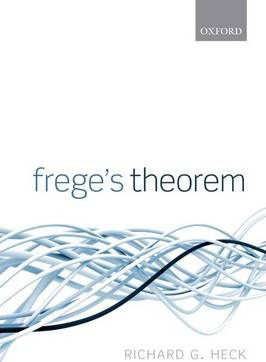
3:AM:You argue that his Theorem is largely defendable don’t you?
RH:The theorem is math, and while it could turn out to be wrong---we all make mistakes---it’s been worked over by dozens of people. It’s a theorem.
What’s controversial is what philosophical significance, if any, the theorem has. Crispin Wright, whose 1983 book Frege’s Conception of Numbers as Objects, launched the contemporary discussion of these issues, argued that, since HP is analytic, or something close to it, Frege’s Theorem (also so dubbed by Boolos) shows that the axioms of arithmetic are logical consequences of an analytic truth and so are also analytic. That’s a very bold proposal, one that would provide a really satisfying account of the source of mathematical knowledge, if only it could be made to work.
In the end, I don’t think Wright’s proposal can be defended, but I think there’s something right about it. In particular, I think there’s something to the idea that HP is fundamental to our thought about cardinal number, and I’ve shown in some of my formal work that extremely weak logical principles are enough to allow one to derive a pretty significant amount of arithmetic from HP. So the thought is that some significant amount of our arithmetical knowledge is, in some sense, grounded in HP, even if not all of it is.
There are some interesting psychological issues here, as well as philosophical ones. I wrote a paper starting to explore those some years ago, “Counting, Cardinality, and Equinumerosity”. But a lot of important work on numerical representation and the acquisition of numerical concepts has been done since by such people as Susan Carey. It’d be nice to look at those issues again, in the light of this more recent work. Stewart Shapiro has been working on this topic recently.
3:AM:What’s Julius Caesar got to do with Basic law V?
RH:In one of the stranger passages in philosophy, Frege criticizes a certain proposal about how the notion of number might be explained by pointing out that it does not allow us to decide whether Julius Caesar is a number and, if so, which one he is. He makes a very similar objection later, to a different sort of proposal about how we might explain the notion of direction, namely, by means of the following ‘contextual definition’ or ‘abstraction principle’:
(Dir) the direction of line a = the direction of line b if, and only if, a is parallel to b
Frege’s objection is that (Dir) does not allow us to determine whether England is the direction of the Earth’s axis.
It’s very unclear, to say the least, exactly why Frege thinks this is a problem and, therefore, exactly what problem he means to be raising. But whatever the problem is, it’s clearly one that he intends to be quite general. It’s meant as a very general objection to a certain strategy for explaining our capacity for thought about abstract entities. Note how similar (Dir) is, for example, to HP above: Conceived as ‘contextual definitions’, both of them explain, in the first instance, what it is for ‘two’ directions (numbers) to be the same, supposing that we can thereby explain what directions (numbers) are. So the ‘Caesar objection’, even in Frege, implicitly targets the idea, which Wright defends, that HP can be used to explain what numbers are.
Frege’s infamous Basic Law V---infamous, because it is what leads to Russell’s Paradox and so to the inconsistency of Frege’s system---has a very similar form, too:
(V) The extension of the concept F = The extension of the concept G if, and only if, every F is a G and every G is an F.
Frege does not actually intend Basic Law V to explain the concept of extension in the sense in which the proposal he criticizes attempts to use principles like HP and (Dir) to explain number and direction. He can’t do so, because then he’d be vulnerable to his own objection. But he nonetheless raises a very similar worry about Basic Law V, i.e., and roughly, that (V) can’t determine whether Caesar is the extension of a concept and, if so, of which one. Looking at how Frege proposes to resolve this problem tells us a lot about how he thought the notion of extension should be explained, and also about how his view differs from Wright’s.
So I’ve spent a lot time trying to figure out, actually, what Julius Caesar might have to do with Basic Law V!
3:AM:How would you summarise Frege’s achievements in philosophy of maths? Why don’t you think his entire foundational project to be a hopeless daydream, as some philosophers have thought?
RH:One thing I’ve emphasized in my work on Frege is that he was primarily concerned with a certain set of epistemological issues about mathematics: What is the nature of mathematical knowledge? How is it related to logical knowledge? Or to empirical knowledge? I think Frege’s reflections on these issues are among the most powerful and inspiring we have, and long-term engagement with them can be really fruitful. That’s all independent of whether his answers are ultimately acceptable, though, as I’ve said, if we restrict attention to certain parts of arithmetic, then I think there may be something fundamentally right about Frege’s answer. It’s much less clear whether Frege has anything distinctive to teach us about real analysis, or set theory. Those too were meant to be encompassed by his grand scheme, and many have tried to rehabilitate that part of his project. But I’m skeptical.
Generally speaking, I tend to think that whether a philosopher’s views are true is a poor test of their quality. What matter are the arguments they give, and the insights those arguments inspire.
3:AM:Frege’s importance is in the philosophy of language as well as maths isn’t it? Before looking at some of the areas you’ve discussed, can you explain how his work is important in philosophy of language and whether it survives the problems Russell found?
RH:I actually wrote a paper, with Robert May, on this very topic. It’s called “Frege’s Contribution to Philosophy of Language”. People can find it on my website. But, to sum up, I think Frege’s central contributions are four.
First, there’s his discovery of quantification and, more generally, the idea of variables and binding. There’s no modern linguistic theory without that.
Second, there’s Frege’s emphasis on compositionality: the idea that the meaning of a compound expression---e.g., a simple sentence like “John sings”---should be determined by the meanings of its significant parts, e.g., “John” and “sings”. What Frege was really the first to appreciate was that, if you really take this idea seriously, then you can’t just wave your hands at how ‘composition’ of meanings occurs. It’s not as if “John sings” has to be composed of words that have their own meanings. It’s an empirical fact that it is. So you have to give a rigorous account of how ‘composition’ occurs. You have to say what it is exactly that “John” means and what “sings” means, and you have to show how those two meanings combine to give you the meaning of “John sings”. Semantics as we know it was born (or at least conceived) when Frege took this problem seriously.
Third, as a result of his taking compositionality seriously, Frege articulated the first remotely plausible semantic theory for a language of reasonable expressive power: He actually gives us a compositional semantics for the language of second-order logic. In this, he anticipates the great work of Alfred Tarski on theories of truth, though Frege’s semantics is nowhere near as rigorous as Tarski’s. Of course, Frege’s approach has hardly survived unmodified in contemporary semantics, but many of his central ideas remain extremely important: his treatment of quantification, for example, which survives in the theory of generalized quantifiers; and his treatment of composition as a form of function application, which is central to many conceptions of what compositionality is.
Fourth is Frege’s famous distinction between sense and reference, which I’ll discuss in connection with the next question. It’s this aspect of Frege’s views about language, specifically, that Russell criticizes in “On Denoting”. And, of course, it is controversial to this day whether we really do need a distinction between sense and reference. But it’s obviously to Frege’s credit to have formulated a question that is still being debated, productively, 125 years later.
3:AM:What was Frege’s theory of belief, and is it better than his theory about language?
RH:I mentioned before that Frege’s philosophical focus was extremely narrow. He actually has almost nothing to say about belief in general, in the way philosophers of mind might talk about belief. His interest in cognitive states---beliefs, desires, intentions, and the like---is almost completely limited to various forms of what we now call ‘Frege’s puzzle’: the now classic problem of Hesperus and Phosphorous. It seems like it’s perfectly possible for, say, Lois Lane to know that Superman can fly without her knowing that Clark can fly, even though Superman is Clark. If that is right, then it can also easily seem as if what Lois knows, given that she knows that Superman can fly, has to be different from what she doesn’t know, given that she doesn’t know that Clark can fly. And if that is right, then what one knows, when one has ‘singular knowledge’ about an object, can’t be just a matter of which object is in question and what property one attributes to it, since the same object is in question (Superman, i.e., Clark) and the same property is attributed (being able to fly).
Frege’s solution to this problem is to posit the notion of “sense”: What Lois knows is different from what she doesn’t know because it involves different ‘senses’ or ‘modes of presentation’ or ‘ways of thinking’ of Clark (i.e., Superman), even though she’s thinking about the same person in both cases. Unfortunately, while Frege is long on arguments for the necessity of a notion of sense, he is infamously short on explanations of what exactly sense is supposed to be. So Frege bequeathed us a problem, not a solution.
What I’ve just said, note, was about the role that sense plays in our theory of mind. Frege also thinks that sense has an important role to play in the theory of language. He argues, in particular, that (for Lois, at least) the names “Superman” and “Clark Kent” have different meanings, and that this aspect of their meaning is sense. I.e., he claims that the meaning of “Superman” is the ‘mode of presentation’ that Lois employs in her Superman-thoughts, and that the meaning of “Clark Kent” is the different ‘mode of presentation’ that she employs in her Clark-thoughts.
This idea, that there is a single notion that spans mind and language in this way, is grounded in inchoate views about the nature of communication that surface in Frege but are never really developed. Much of my own work in philosophy of language is devoted to developing them, following Dummett’s lead, in many respects. This begins in one of my earliest papers, “The Sense of Communication”, but continues in some of my most recent, such as “Semantics and Context-Dependence”.
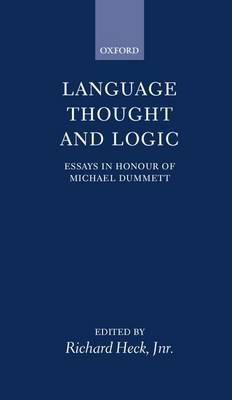
3:AM:You’ve discussed many of the issues arising from studying Frege, and Michael Dummettseems to be someone who has been of great interest to you. Some of the issues you discuss seem to track Dummett’s interests. How do you assess Dummett’s achievements?
RH:Dummett was my B.Phil. supervisor, and an extremely important person in my own intellectual and personal development. His work on Frege is just foundational. I can’t tell you how many times I’ve found myself puzzling over some aspect of Frege’s thinking, and then I’ll finally get it figured out, only later to realize that Dummett had been there before me. But maybe the most important thing about Dummett’s work on Frege is just that it was really Dummett who established Frege’s importance for philosophy. If Frege’s in the pantheon, it’s largely because Dummett put him there.
Of course, Dummett worked on a wide range of other topics: philosophy of logic, mathematics, and language, and on metaphysics. As Graham Priest wrote when Dummett died, one really can’t over-state his role in making ‘non-classical’ logic a legitimate topic of mainstream philosophical inquiry. But, for my money, it’s Dummett’s work in philosophy of language that is most important. I think a lot of people are just starting to realize how rich it is. There have been several papers in recent years, for example, attempting to articulate Dummett’s distinction between what he called “assertoric content” and “ingredient sense”, which was all but ignored for nearly forty years (Jason Stanley’s “Rigidity and Content” is an exception), but has now proven to be extremely important.
For a long time, Dummett’s work on language got less attention that it deserved, I think, because, in Dummett’s own writing, it is intimately bound up with his arguments for metaphysical anti-realism: the view (very roughly) that the facts cannot outstrip what it is possible for us to know. In fact, though, much of Dummett’s work on language is independent of those sorts of applications. More than anyone else in the 1970s, for example, Dummett was interested in the idea that understanding a language is a kind of cognitive state. (See, e.g., “What Do I Know When I Know a Language?”) This gets picked up by some other people in Oxford: Wright, and Gareth Evans, and Martin Davies, for example. But it’s really not until the emergence of broadly Chomskyan ways of thinking about semantics, in the work of Jim Higginbotham (one of my PhD supervisors) and others, that people really start to develop this idea and explore its consequences. A lot of my own work in philosophy of language is along these lines.
3:AM:Dummett brought vaguenessback into the firing line with his seminal paper ‘Wang’s paradox’. You have discussed various aspects of this puzzle. One interesting argument you present is a disagreement with Gareth Evans who argued that there can’t be vague objects. Why do you say he was wrong?
RH:One thing that’s amazing about Dummett is that, besides doing sustained and influential work in all the areas I just mentioned, he also wrote several one-off sorts of papers of his that were just incredibly important. His paper “Wang’s Paradox” is often credited, as you said, with launching the contemporary discussion of vagueness. His paper on McTaggart is also widely cited. His papers on causal loops and backwards causation are also significant. And that’s before we even get to his work on systems of voting (see here).
Evans’s argument against the possibility of vague objects is very short. (The paper in which it is contained is, and I am being completely serious, one page long.) Suppose that A is a vague object. Then, naturally, one would suppose that this means there are cases in which it is vague (indeterminate) whether A is the same as some object B. But surely it is not vague whether A is A. So B has a property that A does not have, namely:
(*) being such that is vague whether you are A.
Leibniz’s Law of the indiscernability of identicals then implies that A is not B, after all.
One common reply to this is that (*) does not really express a property of objects, as opposed to ways we think about (or refer to) objects. I argue that this may be, but this response is not available to someone who thinks that objects can be vague, and not just our ways of thinking about objects. But that’s Evans’s target.
I argue instead that Evans’s argument is incomplete. It is rather difficult to say why in such an informal setting. But the basic idea borrows from intuitionistic accounts of mathematics. Intuitionists think that there are cases in which, say, some identity statement between real numbers is neither true nor false, even though we know that it cannot possibly be false. That is: We know that it cannot not be that a = b, say, but we cannot conclude that a = b. We can’t, in general, move from not-not-p to p in intuitionistic logic. , I suggest that the believer in vague objects should say something similar. It can never be true that it is vague whether A is B. But that does not imply that there is always a fact of the matter whether A is B.
I agree that this seems strange, but thinking that there are objects that are vague (not just vague ways of thinking about determinate objects) is itself strange.
3:AM:You defend a supervaluationist account against epistemicistand contextualist accounts of vagueness don’t you? Why aren’t you convinced by epistemicist and contextualist approaches?
RH:To borrow from Mark Twain, I tend to think that reports of the death of supervaluationist approaches have been greatly exaggerated. The arguments that have been given against supervaluationism usually aim to show that it is just incoherent. But it’s not. It may be false, as a general theory of vagueness, but it’s a coherent and, I think, even correct way to think about some vagueness.
Regarding epistemicism, Tim Williamsonis to be applauded for the resourcefulness with which he defends this view, which had been articulated before but never taken very seriously. But, like most people, I find the view literally incredible nonetheless. The core problem, to me, is just that it is very hard to see how, e.g., a particular use by me of the word “red” could come to have a determinate and completely definite extension. This is in part because “red” is obviously context-sensitive: What counts as red varies from occasion to occasion. So there would have to be something in the context in which I uttered “red” that fixed definite cut-offs. I don’t have a general argument that that’s impossible, but it seems to me completely implausible when I think about what’s actually available in the contexts in which communication ordinarily occurs.
As for contextualism, I think it is just wrong-headed, if by ‘contextualism’ we mean a view on which vagueness is due to the fact that sentences containing vague terms have different truth-conditions when uttered in different contexts. Note that I am not saying that vague terms aren’t context-sensitive: I just emphasized that “red” is; surely most, perhaps even all, vague terms in natural language are context-sensitive. The issue is whether the vagueness of “red” can be explained in terms of its agreed context-sensitivity.
I tend to regard it as axiomatic that vagueness is not a specially linguistic phenomenon. It can (and does) arise entirely at the level of thought. If my cats have thoughts (which I think they do), then I strongly suspect some of them involve concepts that are vague. How could they not? But, or so it seems to me, there’s no coherent notion of context-sensitivity for thoughts. Indeed, I think that once one gets clear about what that would even mean, it’s pretty obvious that it’s impossible. (There’s a nice paper by my old student Steven Gross that explores some of these issues.)
In fact, however, “contextualism”, as it is applied to theories of vagueness, is sometimes used for a different sort of view, one that emphasizes ‘open texture’, ‘family resemblance’, and that kind of thing. Stewart Shapiro’s view is of this kind, for example, whereas Delia Graff Fara’s view is contextualism in the sense in which I’d prefer to use that term (since that’s how it’s used in other settings). This kind of view actually seems to me to be not very different from supervaluationism, if one has a sufficiently abstract sense of what supervaluationism is. But let me not try to explain that here.

3:AM:The Liar paradox. Are we able to solve it or are we going to have to live with it?
RH:This is a great question, and I think it needs to be given a lot more attention.
Most work on the Liar assumes, it seems to me, that it just has to be solvable. This is why people are so obsessed nowadays with the so-called “revenge problem”: Every time you think you have a solution to the Liar, it rises from the ashes in new, even nastier form. So the Holy Grail has become a solution that is “revenge immune”, as Hartry Field once put it. I guess I’ve become convinced that this is impossible. I don’t know how to argue for that. I’m not even sure it’s something it’s possible to argue for. But I’ve seen enough attempts fail, and it’s always for the same reason. The ‘solution’, which involves some account of what “true” means in a given language, makes use of some expressive resource that are not available in the original language. And when you try to apply the solution to the language in which the solution is itself stated, it blows up.
So I think we need to learn to live with the Liar, the same way we have learned to live with the Gödel incompleteness theorems (to which it is closely related). The interesting question, which is the one I think should get more attention, is what the philosophical consequences of this orientation are. It implies quite directly that there can be no all-encompassing language: no single language in which everything that can be said at all can be said. And it isn’t just language. There will be a corresponding (but forever moving) limit to thought. Our conceptual resources, to borrow a term from Dummett, will necessarily be ‘indefinitely extensible’, without limit, as a matter of necessity. It seems to follow that there can be no single ‘theory of everything’. Any such theory would have to be stated in some language; but there is no all-encompassing language, so there will of necessity be truths that any candidate for the ‘theory of everything’ omits.
If that is right, it seems like something that ought to be of real philosophical significance, though I’d be hard-pressed to say what that significance is. To be honest, this all makes my brain hurt.
3:AM:Are Fodorand Leporeright to see compositionality as non-trivial?
RH:Absolutely!
There have been arguments to the contrary, by Paul Horwichand, more recently, Field. But these arguments seem to me just to fail to engage with what the principle of compositionality really is. Here’s a simple example. Consider the following principle:
(OR) A disjunction is true just in case one of its disjuncts is true.
Various people have argued that, for a deflationist, this is trivial. But if you look at the way that this principle is actually stated and deployed in real semantic theories, it incorporates the assumption that “or” is truth-functional, i.e., that the truth or falsity of “A or B” depends only upon the truth and falsity of A and of B. The deflationist “proof” of (OR), however, cannot possibly show that “or” is truth-functional. So, while deflationists can perhaps prove something that looks like (OR), they can’t prove the principle semanticists actually care about.
Obviously, there are epicycles here that we could ride for a while. But that’s the core of the argument.
3:AM:What’s the connection between compositionality and deflationism? Is it part of your disagreement with those like Hartry Field and others who argue for a methodological deflationary theory of truth?
RH:In order to state the argument I just outlined properly, we would need to get a lot clearer about what sort of deflationism might hope to prove (OR). I argue that only the most radical form of deflationism, disquotationalism, can do so. This is a form of deflatonism for sentential truth, one that claims (a) that truth is primarily a property of sentences (rather than propositions) and (b) that we can completely explain that property by saying, e.g., that “Snow is white” and “The sentence ‘snow is white’ is true” are essentially synonymous.
My work on ‘deflationism’ is always really about the sort of disquotationalism I’ve just described. Many people who call themselves deflationists are deflationists about propositional truth but not about sentential truth. I only ever mention that view to distinguish it from disquotationalism. I don’t really have any objection to it, other than that I don’t believe in propositions, so I don’t think there’s any such thing as a proposition’s being true. Truth, on my view, is primarily a property of representations, such as sentences and certain kinds of mental states.
For reasons that I’ll not try to explain, disquotationalism is really a view about truth-conditions, i.e., about meaning. It’s even more extreme than the familiar Quineanrejection of propositions. It amounts to the view that we need no notion of representational content at all for any legitimate theoretical purpose. So thinking about whether disquotationalism is viable is, in the end, a way of thinking about whether and why we need a robust notion of representational content. That’s the issue I care about.
If disquotationalism can’t make proper sense of compositionality, then that’s a mark against it, in my view, because we have an on-going and quite successful research program---namely, natural language semantics---for which compositionality is a core, guiding principle (though one often honored in the breach). Moreover, for all the reasons Fodor and Lepore give, compositionality is arguably crucial to any reasonable account of the systematic and productive character of thought. It really is amazing that, if you explain to me by example what it is for something to be, say, ‘zygomorphic’, suddenly I am able to have bazillions of new thoughts I couldn’t have before, not just the one you happen to have shared with me directly. This is an empirical fact that needs explaining. There’s no reason things have to be that way.
3:AM:And finally, are there five books you can recommend for readers here at 3:AM that will take them further into your philosophical world?
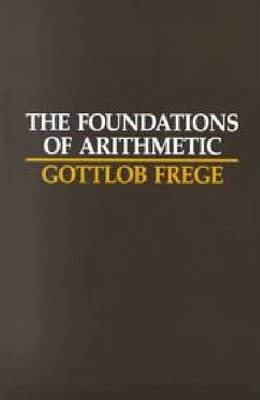
RH:Well, for starters, there is Frege’s Foundations of Arithmetic. It’s difficult, but a must-read for anyone interested in philosophy of mathematics. But this is a very hard question for me to answer, because the areas in which I’ve worked are more article-driven than book-driven. Donald Davidson, for example, never published a book-book (as opposed to a collection of papers) while he was alive, and some of his work is pretty basic to a lot I’ve done in philosophy of language. And, while Dummett wrote some very important books, much of his most lasting work is in papers like “What Is a Theory of Meaning?” and “The Justification of Deduction”. If there’s another book I’ve spent way too much time with, though, it’d probably be Gareth Evans’s Varieties of Reference.
I think the best way to get a sense for what I think is important in philosophy is to look at the syllabi for my courses. They are all online.
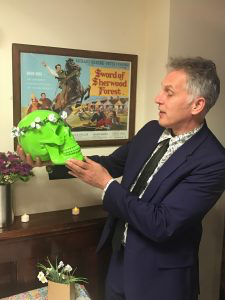
ABOUT THE INTERVIEWER
Richard Marshallis still biding his time.
Buy his new book hereor his first book hereto keep him biding!